#folk music!
Text
If you have Spotify reblog this and tag what your number one song on your “on repeat” playlist is.
#mine is#veronica mars#by#blondshell#music#tag meme#on repeat#I’m just curious and I want new music lol#spotify#meme#memes#alt#scene#emo#punk#metal#goth#gothgoth#gothic#alternative#rap#country#folk#idk what else to tag this
94K notes
·
View notes
Text
"I had choice paralysis :(" is a KILLER line.
He's such a comedic powerhouse, I'm glad more people are getting exposed to him :'D
#smosh#smosh pit#tntl#shayne topp#zac oyama#tommy bowe#try not to laugh#dropout#smosh tntl 149 for anyone looking for the full video! since this took off :)#okay this broke containment noticeably so some additional context for anyone wondering#guy in trench is zac oyama. extremely funny comedian. he's on a streaming service called dropout. I advise looking up 'Make Some Noise' on#yt and watching the full episodes/compilations available for free there#He is in a youtube video with Smosh cast in an improv format they do called 'Try Not To Laugh'. Smosh cast folks are also very funny- a good#proportion of them at this point are also prifessional comedians. There are other Try Not To Laugh videos. a LOT of them. they can be#hit or miss but a lot of them are quite good (blind pairs or the musical episodes are all pretty good)#Smosh has multiple channels- this one is called Smosh Pit ajd also has other stuff they do. Challenge Pit is also quite funny. there is also#smosh games channel. smosh cast channel. and the main smosh channel#tbh i recommend looking up compilations of cast members to figure out what content you might find compelling but they make a pretty broad#spread of stuff at this point so odds are decent youll find something funny. esp if you already watch dropout :)#ok infodump over. glad ppl are having fun with this lol
18K notes
·
View notes
Text
Thrilled to see someone carrying on the tradition of protest folk music. Keep fighting the good fight!
#jesse welles#war isn’t murder#music#folk music#protest music#leftist#leftblr#communist#socialist#communism#socialism#anti capitalist#anti capitalism#leftist politics#human rights#anti war#anti war protest#free palestine#free gaza
6K notes
·
View notes
Text
folk music:
"I have faced generations of oppression and mourn my lost love and country, but my culture will persist and survive"
also folk music: "I am going to drink so much alcohol you don't understand. literally So much alcohol"
also folk music: "oops I killed my husband lol"
also folk music: "shit I should have married that girl. too bad she keeps ignoring me every time I try to break into her house"
also folk music: "I feel an unimaginable grief for a past I can never return to"
also folk music: "fiddle dee doodle diddle deedle deedle dee"
6K notes
·
View notes
Text

#bob dylan#joan baez#leonard cohen#tim buckley#joni mitchell#phil ochs#judy collins#cat stevens#yusuf islam#donovan#folk#folk music#music
1K notes
·
View notes
Text
mengguwu/inner mongolian folk dance on xhs and douyin
737 notes
·
View notes
Text
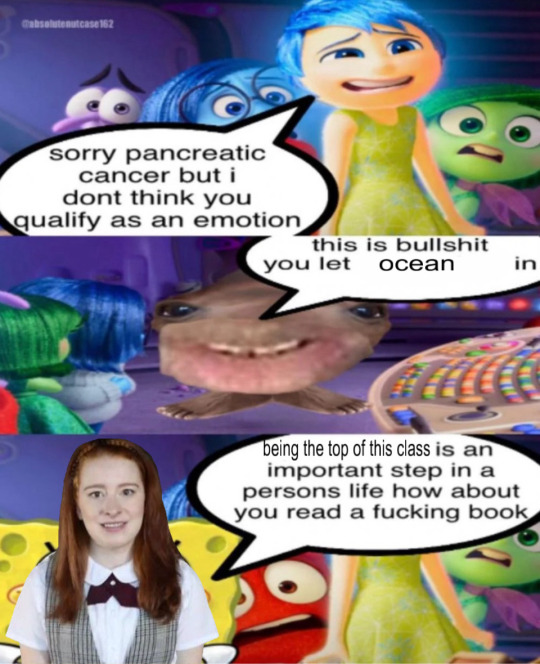
#OKAY ITS CLEAR IM THE TOP OF THIS CLASS#THESE FOLKS HERE WHILE THEY PUMP THE GAS#ocean oconnell rosenberg#rtc#ride the cyclone#rtc musical#ocean ride the cyclone#ocean rosenberg#ocean rtc#shitpost
920 notes
·
View notes
Text

joni mitchell, cass elliot, and judy collins at the big sur folk festival, 1968💐🌞
#joni mitchell#cass elliot#judy collins#1968#folk#60s#60s music#rock n roll#1960s#festival#music#classic rock#60s fashion
2K notes
·
View notes
Text
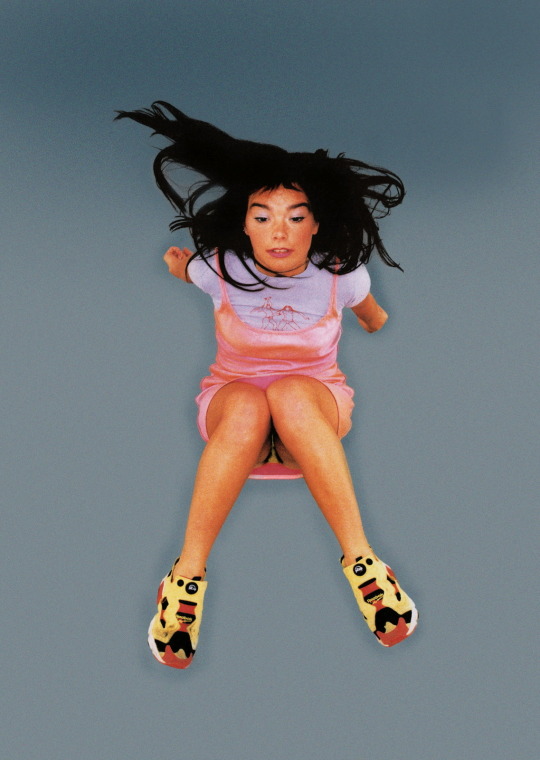
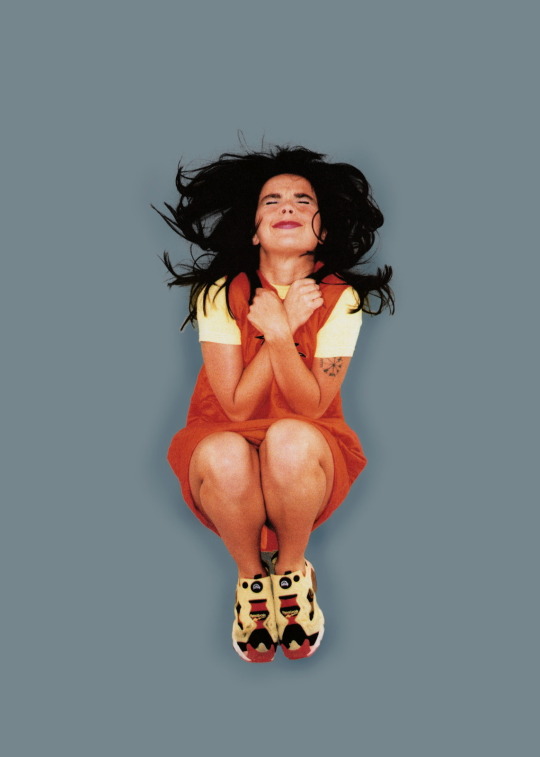
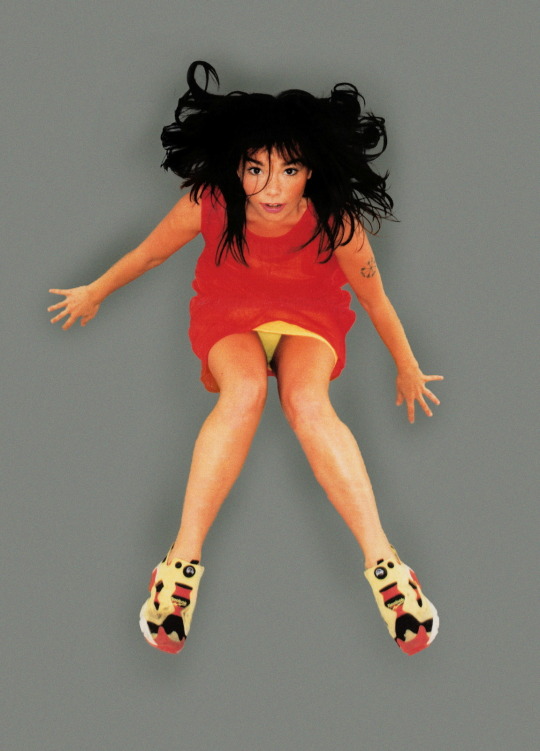

Björk for Rock & Folk n°335 (1995) Photography: Jean-Baptiste Mondino
1K notes
·
View notes
Text

I’ve had this piece in my head (and on random post-it notes) since 2020-2021. It’s nice to finally put it to paper, or to procreate I guess. It’s not quite how I pictured it, but it’s where I’m at now skill-wise.
The Crane Wives are one of my favorite bands, and have been a huge inspiration in all of my creative pursuits, whether that be art or writing. Their music really speaks to me.
It was interesting reading up on the meaning behind the band name! I wasn’t aware of the myth of the crane wife before, it was really interesting reading up on it, and it helped me figure out exactly which bird to draw. If you’re not familiar with it and like mythology, I definitely recommend looking it up!
[ID: digital illustration of a red-crowned crane with its mouth wide open and a stylized, long neck wrapping around and behind it. In its open beak are the hand-lettered words: “THE CRANE WIVES”. There is a white border around the edge of the frame, and the piece has a word, rough style to its inking and rendering./end ID]
#fanart#the crane wives#my art#leaves and inks#folk art#the crane wives fanart#illustration#hand lettering#crane wives#red crowned crane#bird#bird art#crane#music artwork#indie music#procreate#drawing#graphic design is my passion#fan art#is it one word? idk#crane wives fan art
615 notes
·
View notes
Text


#gloomy#music#dark music#music artists#artists on tumblr#new music#rural abandoned#rural gothic#rural#morute#abandoned#vintage#shoegaze#progressive metal#indie sleaze#2014#2014 tumblr#2014 grunge#grunge#tumblr girls#Spotify#folk
564 notes
·
View notes
Text
"What would your life be like without music?"
Miserable. I'd rather bite the sidewalk and have someone stomp on my skull than not have music.
#girlblogging#just girly things#girlhood#music#spotify#lana del rey#mitski#ethel cain#bôa#the crane wives#metallica#system of a down#rob zombie#hozier#crawlers#destroy boys#rock#metal#indie#folk music#yuh#florence and the machine
2K notes
·
View notes
Text
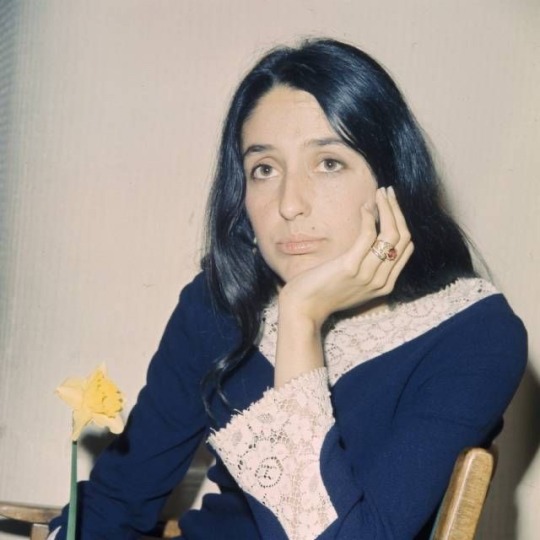

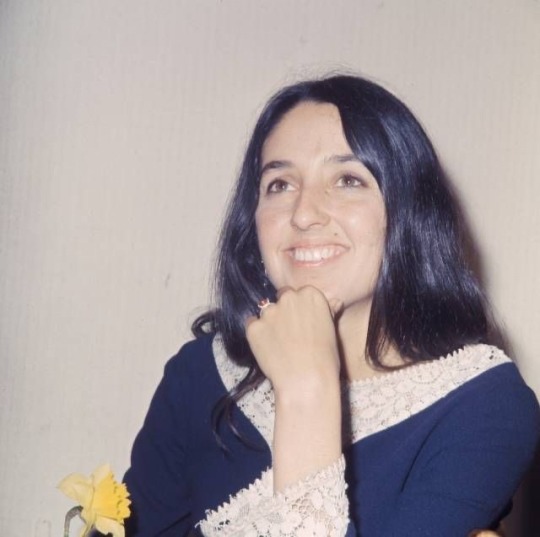

#i wish time travel existed so i could go to the 60’s and give her a little kiss#or maybe i’ll just go on a quest and find her now#she’s so pretty#and cool#joan baez#1960s#folk#60’s music#bob dylan
1K notes
·
View notes
Text


Joan Baez covers from Vanguard Records, 1960s.
427 notes
·
View notes
Text
the appalachian murder ballad <3 one of the most interesting elements of americana and american folk, imo!
my wife recently gave me A Look when i had one playing in the car and she was like, "why do all of these old folk songs talk about killing people lmao" and i realized i wanted to Talk About It at length.
nerd shit under the cut, and it's long. y'all been warned
so, as y'all probably know, a lot of appalachian folk music grew its roots in scottish folk (and then was heavily influenced by Black folks once it arrived here, but that's a post for another time).
they existed, as most folk music does, to deliver a narrative--to pass on a story orally, especially in communities where literacy was not widespread. their whole purpose was to get the news out there about current events, and everyone loves a good murder mystery!
as an aside, i saw someone liken the murder ballad to a ye olde true crime podcast and tbh, yeah lol.
the "original" murder ballads started back across the pond as news stories printed on broadsheets and penned in such a way that it was easy to put to melody.
they were meant to be passed on and keep the people informed about the goings-on in town. i imagine that because these songs were left up to their original orators to get them going, this would be why we have sooo many variations of old folk songs.
naturally then, almost always, they were based on real events, either sung from an outside perspective, from the killer's perspective and in some cases, from the victim's. of course, like most things from days of yore, they reek of social dogshit. the particular flavor of dogshit of the OG murder ballad was misogyny.
so, the murder ballad came over when the english and scots-irish settlers did. in fact, a lot of the current murder ballads are still telling stories from centuries ago, and, as is the way of folk, getting rewritten and given new names and melodies and evolving into the modern recordings we hear today.
305 such scottish and english ballads were noted and collected into what is famously known as the Child Ballads collected by a professor named francis james child in the 19th century. they have been reshaped and covered and recorded a million and one times, as is the folk way.
while newer ones continued to largely fit the formula of retelling real events and murder trials (such as one of my favorite ones, little sadie, about a murderer getting chased through the carolinas to have justice handed down), they also evolved into sometimes fictional, (often unfortunately misogynistic) cautionary tales.
perhaps the most famous examples of these are omie wise and pretty polly where the woman's death almost feels justified as if it's her fault (big shocker).
but i digress. in this way, the evolution of the murder ballad came to serve a similar purpose as the spooky legends of appalachia did/do now.
(why do we have those urban legends and oral traditions warning yall out of the woods? to keep babies from gettin lost n dying in them. i know it's a fun tiktok trend rn to tell tale of spooky scary woods like there's really more haints out here than there are anywhere else, but that's a rant for another time too ain't it)
so, the aforementioned little sadie (also known as "bad lee brown" in some cases) was first recorded in the 1920s. i'm also plugging my favorite female-vocaist cover of it there because it's superior when a woman does it, sorry.
it is a pretty straightforward murder ballad in its content--in the original version, the guy kills a woman, a stranger or his girlfriend sometimes depending on who is covering it.
but instead of it being a cautionary 'be careful and don't get pregnant or it's your fault' tale like omie wise and pretty polly, the guy doesn't get away with it, and he's not portrayed as sympathetic like the murderer is in so many ballads.
a few decades after, women started saying fuck you and writing their own murder ballads.
in the 40s, the femme fatale trope was in full swing with women flipping the script and killing their male lovers for slights against them instead.
men began to enter the "find out" phase in these songs and paid up for being abusive partners. women regained their agency and humanity by actually giving themselves an active voice instead of just being essentially 'fridged in the ballads of old.
her majesty dolly parton even covered plenty of old ballads herself but then went on to write the bridge, telling the pregnant-woman-in-the-murder-ballad's side of things for once. love her.
as a listener, i realized that i personally prefer these modern covers of appalachian murder ballads sung by women-led acts like dolly and gillian welch and even the super-recent crooked still especially, because there is a sense of reclamation, subverting its roots by giving it a woman's voice instead.
meaning that, like a lot else from the problematic past, the appalachian murder ballad is something to be enjoyed with critical ears. violence against women is an evergreen issue, of course, and you're going to encounter a lot of that in this branch of historical music.
but with folk songs, and especially the murder ballad, being such a foundational element of appalachian history and culture and fitting squarely into the appalachian gothic, i still find them important and so, so interesting
i do feel it's worth mentioning that there are "tamer" ones. with traditional and modern murder ballads alike, some of them are just for "fun," like a murder mystery novel is enjoyable to read; not all have a message or retell a historical trial.
(for instance, i'd even argue ultra-modern, popular americana songs like hell's comin' with me is a contemporary americana murder ballad--being sung by a male vocalist and having evolved from being at the expense of a woman to instead being directed at a harmful and corrupt church. that kind of thing)
in short: it continues to evolve, and i continue to eat that shit up.
anyway, to leave off, lemme share with yall my personal favorite murder ballad which fits squarely into murder mystery/horror novel territory imo.
it's the 10th child ballad and was originally known as "the twa sisters." it's been covered to hell n back and named and renamed.
but! if you listen to any flavor of americana, chances are high you already know it; popular names are "the dreadful wind and rain" and sometimes just "wind and rain."
in it, a jealous older sister pushes her other sister into a river (or stream, or sea, depending on who's covering it) over a dumbass man. the little sister's body floats away and a fiddle maker come upon her and took parts of her body to make a fiddle of his own. the only song the new fiddle plays is the tale about how it came to be, and it is the same song you have been listening to until then.
how's that for genuinely spooky-scary appalachia, y'all?
#appalachia#appalachian murder ballads#murder ballads#appalachian music#appalachian culture#appalachian history#appalachian#appalachian folklore#appalachian gothic#tw violence against women#cw violence against women#cw murder#tw murder#folk music#folk#txt
1K notes
·
View notes
Text
By 顾南南枝
610 notes
·
View notes